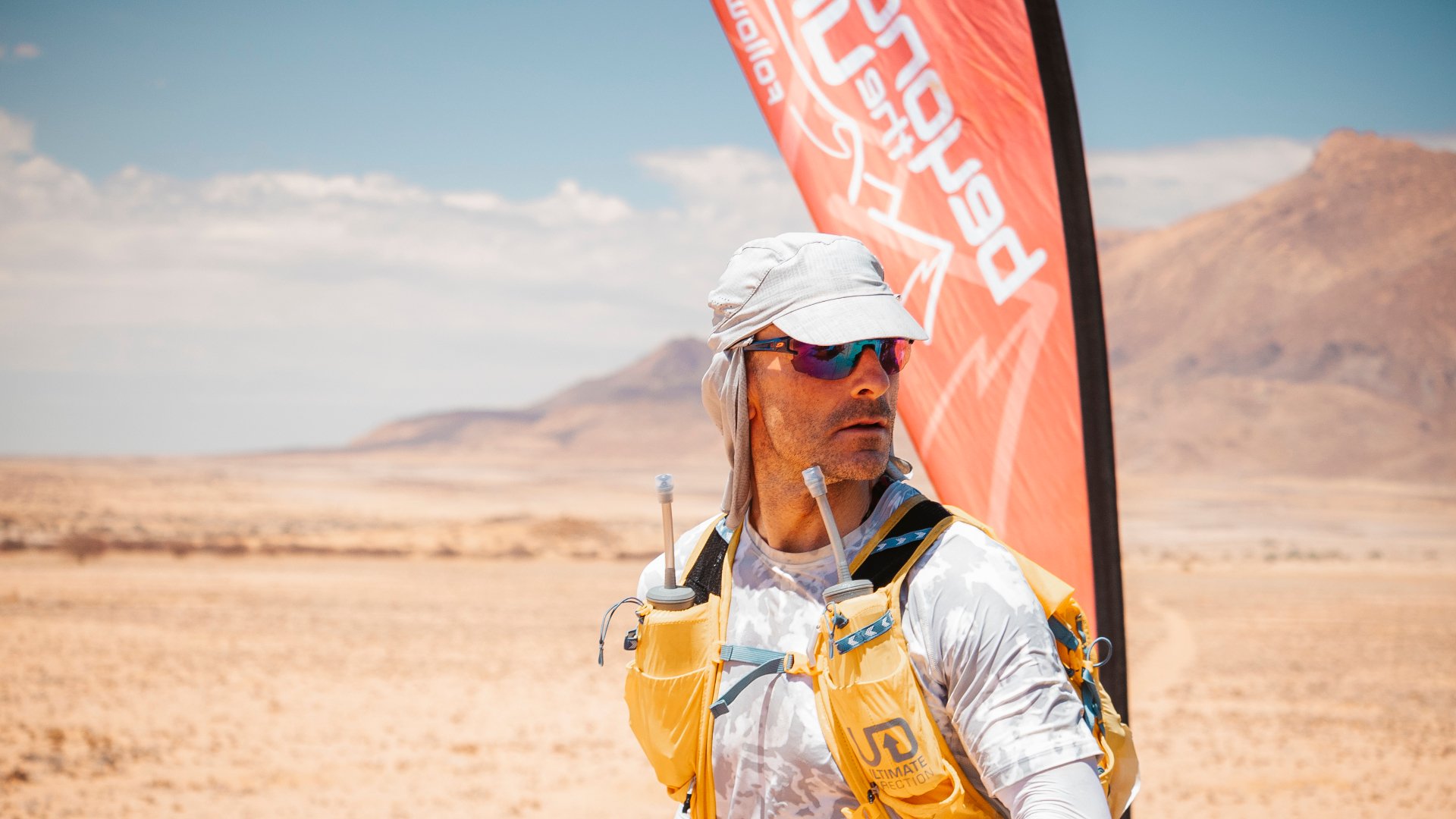Race Nutrition Secrets from a Global Champion: How I Conquered the World’s Most Extreme Ultras
Racing the Beyond The Ultimate Desert Ultra in 53 degree heat in the Namib Desert. The final race in the series to create history becoming the only person to have ever won all of the races.
The Foundation of Performance
You can train as hard as you like, prepare well in every other way, but without a strong nutritional plan in place you will never maximize your potential. I've seen countless races end prematurely due to stomach cramps, diarrhea, and vomiting—all contributing to dehydration and fatigue. The difference between finishing strong and DNF often comes down to what you put in your body, not just how you've trained it.
Planning is Everything
Have a specific nutrition plan for your race. Control as much as you can. What will you eat and drink the night prior to the race and the morning of the race? These aren't decisions to make on race day—they require practice during your training.
I always recommend testing your race nutrition strategy in the lead-up to your event. This way, you'll know if it works or if you need to make adjustments. Your digestive system should be as prepared as your legs!
Finding Your Fuel
What is your preferred fueling method? Solid foods, liquids, gels, or a combination? Consider specific flavors, but also be mindful of taste bud fade and increased hunger over prolonged race distances. When you're 8 hours into an ultra, your palate changes dramatically, and what worked at hour 2 might be impossible to stomach later.
Be prepared by:
Speaking with race organizers to find out what's available at aid stations
Testing foods in advance during your training runs
Carrying your own nutrition or placing it in drop bags if allowed
Environmental Considerations
What race environment are you in? Extreme cold, extreme heat, humidity? Are there river crossings? How will your nutrition handle these conditions?
Will your bars freeze in cold conditions?
Will your nutrition melt in the heat?
Will packaging become compromised when wet?
I have used RealMeal bars since the beginning of my multi-stage racing career, testing them in every environment imaginable. They provide a nutritionally balanced convenient food made with natural ingredients and a substantial 600+ calories in each bar. What makes them indispensable is their durability—they were originally developed for military use and have become my go-to nutrition source for any race beyond the 5-hour mark.
Testing in Extreme Conditions
You might wonder how to test nutrition in advance for extreme conditions. While environmental chambers for heat, humidity, and altitude testing are available at some universities, there are simpler methods:
Use freezers to test how your nutrition reacts to cold (though most home freezers won't match the extreme cold of some race environments)
Get your nutrition wet—put it in a bowl of water or take it out running in the rain
Test if it holds up over prolonged time, not just a 30-minute run but a full day out
The RealMeal bars have passed all these tests for me, maintaining their structure and palatability regardless of the conditions I've faced.
Train Your Gut
One of the most overlooked aspects of race preparation is gut training. By practicing your race fueling strategy during training, you increase your gut's ability to absorb carbohydrates, electrolytes, and fluids. This reduces the risk of stomach issues on race day and allows you to consume and utilize more nutrition when it matters most.
I've progressively trained my system to efficiently process RealMeal bars during long efforts, which has dramatically improved my race-day performance and reduced GI distress.
Final Thoughts
Remember that nutrition isn't just about the calories—it's about finding what works for YOUR body in YOUR race conditions. What works for elite athletes might not work for you, and what works in cool conditions might fail in extreme heat.
RealMeal bars have become my reliable foundation, providing consistent energy when I need it most. In the unpredictable world of ultra running, having nutrition you can count on is worth its weight in gold—or in my case, worth carrying through hundreds of miles of trails.
Jon Shield is a former paratrooper and accomplished ultra runner who made history by becoming the first person to win every race in the Beyond the Ultimate Global Race Series, conquering The Desert, The Amazon Jungle, The Tian Shan Mountains, and The Arctic. His journey began with a victory at the BTU Highlands race, which inspired his quest to dominate the entire series. Jon has formed lifelong friendships through these adventures and continues to seek new challenges. He has been a RealMeal customer since the early stages of his ultra running career before becoming an ambassador, relying on their bars through every extreme environment he's conquered.
